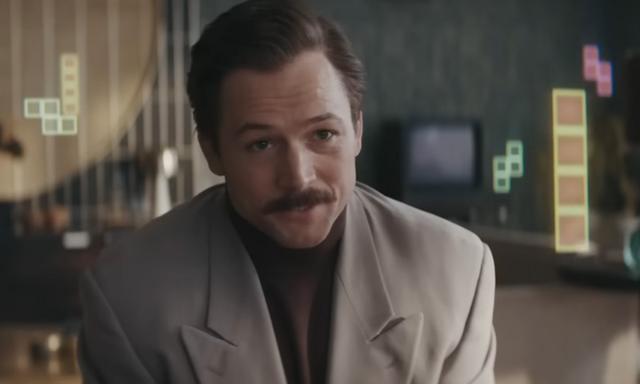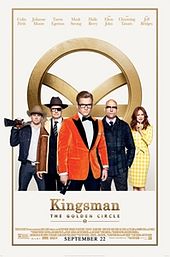It's 1987 and tech entrepreneur Henk Rogers (Taron Egerton) stumbles across a game that will change his life and possibly the course of history - Tetris. A high-stakes legal battle between billionaire Robert Maxwell (Roger Allam), his son Kevin (Anthony Boyle) and Henk ensues when a computer scientist named Alexey Pajitnov (Nikita Yefremov) and his superior (Oleg Stefan) tries to sign away the licensing rights to Tetris, but not without members of the KGB, the Central Committee of the USSR, and even Mikhail Gorbachev getting involved...
While the likes of 'The Social Network' may have given people the idea of complex legal battles being fun to watch, the truth is vastly less cinematic or exciting. Yet, in the case of Tetris, the truth warrants the kind of extravagance that a big, fizzy Hollywood story can bring. In a lot of ways, 'Tetris' is the old story of the clash between art and commerce. Indeed, Tetris began as a hobby for programmer Alexy Pajitnov, made simply to see if it could be made. As the movie shows, it could be made and the game spread like wildfire through the Soviet Union - to such a point that it was eventually had to be banned and blocked from government computers there.
Much of 'Tetris' is following Taron Egerton's irrepressible salesman character tramping around Moscow to lock down the handheld rights to 'Tetris'. Having struck a deal with Nintendo, the legal troubles begin to propagate and flourish when Henk realises that he's been had by arch-villains Roger Allam and Toby Jones, to say nothing of the ludicrously caricatured KGB agents that hover in the background of every scene. Again, while it's clear to see that 'The Social Network' has been an influence here, 'Tetris' paints in far broader colours and has a lot less subtlety.
Moreover, the script collapses in on itself when it gets to the tooing and froing between the different parties vying for control of 'Tetris', and while it's trying to tell the story as truthfully as it can, it eventually buries the underlying themes and message of the movie entirely. It's no longer about how Tetris was made by an artist and then exploited, but simply how that exploitation eventually resolved itself. There's probably a darker, less fizzy version of the story that could be told, one in which ties the whole thing to the collapse of the USSR and the vultures of capitalism readying themselves to feast on it. It's not that 'Tetris' is a bad movie or that it's poorly acted, but rather that it's scripted and directed in such a way that it feels like it could have been really something.
For a movie that's about the inventiveness and the ingenuity of Alexy Pajitnov, and how his creation became so valuable, the movie itself isn't particularly inventive or ingenious. Sure, there's a few interstitials made up of 8-bit graphics, the story is cut up into 'Levels', but everything else feels just a little bit too obvious for a story about something exceptional. Still, 'Tetris' has its moments and Taron Egerton's committed, chipper performance keeps the story rattling along to its inevitable Hollywood conclusion, complete with epilogues showing the real people and their eventual fates.




















































































